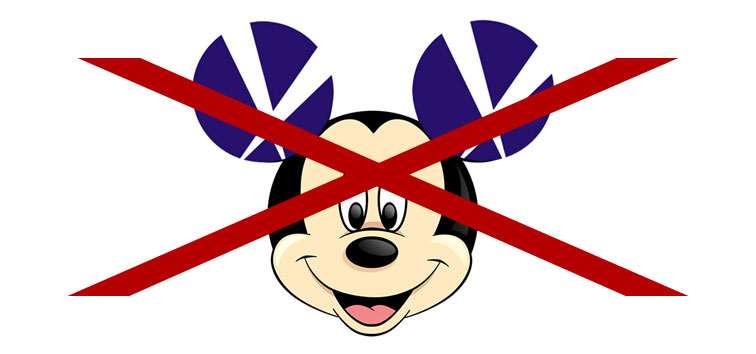Politics & Public Policy
Merger Mania Reboot: Disney-Fox
Faced with the possibility of a behemoth merger that portends bad outcomes for writers, the Guild is mobilizing its forces on all fronts.
(From the February 2018 issue of WriteNow)
By Ellen Stutzman, WGAW Senior Director of Research & Public Policy

If the Department of Justice (DOJ) lawsuit to block AT&T’s acquisition of Time Warner offered a rebuke to our industry’s merger mania, Disney missed the memo. Instead, the company announced its plan to acquire most of Fox’s entertainment assets in a $66 billion deal. While the merger announcement trumpeted the deal and projected regulatory approval as a foregone conclusion, a close look reveals numerous red flags. As the WGAW said in a statement when the merger was announced: “The antitrust concerns raised by this deal are obvious and significant.”
This merger is a bad deal for writers and other entertainment workers, consumers and competition. It unites two of the largest competitors in the entertainment industry and would cement Disney’s position as the largest film and TV producer, employer, programmer and distributor. Mergers of large direct competitors are often subject to heightened scrutiny by regulators because they are more likely to undermine a competitive market.
While Disney has touted the benefits of this transaction to its shareholders, the picture is decidedly less rosy for everyone else. For instance, Disney estimates the merger will result in $2 billion in annual cost savings from “operational efficiencies,” which is Wall Street speak for layoffs. As a result, one analyst has projected that the merger will eliminate 5,000 to 10,000 jobs.
A combined Disney-Fox would be up to twice the size of its next-largest competitor in markets including theatrical distribution and television programming. It would control 35 to 40% of domestic box office. It would account for 1/3 of television and digital media writer earnings. It would control almost 40% of cable affiliate fees. The sheer size would be unprecedented as would its power to cut output, raise prices, put pressure on quotes and staff sizes and squeeze out the competition.
In recent years, Disney and Fox have increased their share of the domestic box office, to a high of 40% in 2016. And they have done so while distributing fewer films, a classic sign of market power. In 2008, for example, the studios distributed 47 films that accounted for 24% of box office receipts. In 2017, they distributed only 33 films but captured almost 35% of the box office. The proposed merger is likely to further shrink that number. In fact, while discussing the deal with investors, Disney CEO Bob Iger remarked, “We’ve obviously done extremely well with a less-is-more strategy and just making tentpole films.” The merger would not only reduce development and film production at the combined company, it could also harm industrywide production. The combined Disney-Fox would be so large and powerful that it could demand access to even more screens for its movies, leaving less room for competing films.
In the markets for television and digital media, a combined Disney-Fox would be a behemoth. The company would command a swath of must-have television networks. The power that comes from controlling such a large share of programming would allow Disney-Fox to raise prices and demand carriage on the most widely-distributed programming tiers, blocking space for competing networks and the writers who create their programming. And in the nascent market of “virtual” cable providers – where Disney-Fox will become the majority owner of Hulu and its live TV service – the company could choose to withhold programming or raise its prices to disadvantage competing services. These outcomes are potentially perilous for writers because opportunities flourish when there are many buyers competing for content.
With vertical integration between production and outlet extending across television and digital media, Disney-Fox would have an inordinate amount of power over content, and ultimately writers. This will mean more reliance on in-house productions and fewer opportunities for independent programmers. Iger has made clear that the combined company’s priority will be to produce content for its own services. And with control over such a large share of television and digital media audiences, Disney will have the power to dictate terms to creators who wish to access these audiences.
None of these are good outcomes, which is why the Guild will be mounting a significant effort to stop this merger. We have been involved in seven merger reviews over the past ten years and have helped stop a few of them including Comcast-Time Warner Cable and hopefully AT&T-Time Warner. Our Political and Public Policy staff will meet with legislators and regulators to discuss the harms of this merger for writers and the entertainment industry. We will work with allies and we will call on Guild members to get involved in lobbying visits and other actions to make sure that our voice is heard loud and clear.
